Cognitive Behavioral Therapy (CBT), Dialectical Behavioral Therapy (DBT), and the 12 Steps each play a crucial role in addiction recovery. While some may view these approaches as separate or even conflicting, they actually complement each other, working together to help individuals manage both the mental and emotional challenges of overcoming addiction.
By addressing the root causes of addiction and providing practical tools for long-term sobriety, these therapies create a comprehensive path to recovery.
Understanding the Challenge of Long-Term Sobriety
One of the most significant challenges individuals face in recovery is maintaining long-term sobriety. Many people struggling with addiction are able to get sober, but staying sober is a different story. The root of this struggle often lies in the mind, as described in the Big Book of Alcoholics Anonymous: “I can’t stay stopped!” This phrase captures the internal conflict that many individuals experience—the desire to stay sober is there, but the mental and emotional challenges of daily life can lead to relapse.
Feelings of restlessness, irritability, and discontent are common during sobriety, especially in the early stages. Learning to manage these feelings is essential for maintaining long-term recovery. The 12 Steps provide a framework for addressing this internal struggle, helping individuals develop the emotional resilience needed to navigate life without turning to substances.
What are the 12 Steps?
There’s no one list of the 12 steps. You’ll find many different variations online, but they all tend to include these same principles:
- Admitting that you need help.
- Believing that you’re worthy of sobriety, and that you’re capable of it.
- Desiring to change your life for the better.
- Examine what may have caused your addiction.
- Reflecting on the negative aspects that may have caused your addiction.
- Giving up self-destructive thoughts and habits, as well as relationships that could harm your sobriety.
- Enact the changes that will help you get your life back on track.
- List all the people your addiction may have harmed.
- Make amends to the people on your list, unless doing so would cause more harm.
- Regularly reexamining your life to make sure negative habits don’t return.
- Finding new and positive habits to replace the negative ones.
- Spreading your teachings by living a clean, kind, and healthy lifestyle.
How the 12 Steps Support Recovery
The 12 Steps are designed to help individuals achieve a transformative experience strong enough to overcome addiction. This process involves self-reflection, making amends, and developing a sense of purpose beyond substance use. By working through the steps, individuals gain a deeper understanding of themselves, their behaviors, and the impact of their addiction on others.
The 12 Steps are often introduced through self-help or mutual-help groups such as Alcoholics Anonymous (AA) and Narcotics Anonymous (NA). These groups provide a supportive community where individuals can share their experiences, receive encouragement, and learn from others who have successfully maintained sobriety.
However, the 12 Steps are not limited to peer support groups—they can also be integrated into professional treatment programs, where they are delivered in an educational and structured manner.
Combining the 12 Steps With CBT and DBT

While the 12 Steps focus on personal growth and spiritual development, CBT and DBT provide practical tools for managing the thoughts, emotions, and behaviors that contribute to addiction. By combining these approaches, individuals can address both the cognitive and emotional aspects of recovery, creating a more comprehensive and effective treatment plan.
CBT helps individuals identify and challenge negative thought patterns that lead to substance use. Through CBT, individuals learn to reframe their thoughts, develop healthier coping mechanisms, and build the skills needed to manage cravings and triggers. DBT, on the other hand, focuses on emotional regulation, mindfulness, and interpersonal effectiveness. This therapy is particularly effective for individuals who struggle with intense emotions, self-destructive behaviors, and relationship challenges.
Together, these therapies help individuals develop the mental and emotional resilience needed to maintain long-term sobriety. By addressing the underlying issues that drive addiction, CBT and DBT enhance the effectiveness of the 12 Steps, making it easier for individuals to stay sober and build a fulfilling life.
The Role of Treatment Centers in Teaching the 12 Steps
In a treatment center setting, the 12 Steps can be delivered in an educational and supportive manner that helps individuals understand the process and determine if they are ready to commit to the work required for recovery. While some individuals may attend AA or NA meetings for years without fully understanding the 12 Steps, treatment centers provide a structured environment where the steps can be explained, discussed, and personalized to each individual’s needs.
One common misconception about the 12 Steps is the emphasis on a “higher power” or spiritual belief. This concept can be a barrier for some individuals, especially those who are not religious or have had negative experiences with organized religion.
In a treatment center, trained clinicians and peer-recovery advocates can help individuals explore the idea of a higher power in a way that is meaningful and accessible to them. Rather than focusing on religious beliefs, the emphasis is on finding a source of strength and purpose that resonates with the individual.
Why the 12 Steps are Effective in Treatment Settings
One of the key benefits of introducing the 12 Steps in a treatment setting is the opportunity for personalized guidance and support. Trained clinicians can help individuals navigate the steps, address any challenges that arise, and apply the principles of the 12 Steps to their daily lives. Peer-recovery advocates, who have experienced the 12 Steps themselves, provide valuable real-world insight and encouragement.
Additionally, the structured environment of a treatment center helps individuals stay focused and accountable as they work through the steps. This combination of professional guidance and peer support creates a sense of community and connection, which is essential for maintaining long-term recovery.
By integrating the 12 Steps with evidence-based therapies like CBT and DBT, treatment centers offer a comprehensive approach that addresses both the emotional and cognitive aspects of addiction.
Addiction Recovery at Luna Recovery for Women

At Luna Recovery for Women, we believe that long-term recovery is possible through a combination of the 12 Steps and evidence-based therapies. Our team of compassionate professionals understands the challenges of addiction firsthand, and we are committed to helping women reclaim their lives through personalized treatment and support.
Our outpatient programs are designed to provide women with the tools and resources they need to achieve lasting sobriety. By integrating the 12 Steps with CBT, DBT, and other therapeutic modalities, we help individuals address the underlying causes of their addiction and develop the skills needed to maintain long-term recovery. Our peer-recovery advocates, many of whom are in long-term recovery themselves, offer valuable support and encouragement, helping women feel understood and empowered throughout their journey.
Contact Luna Recovery for Women
If you or a loved one is struggling with addiction, Luna Recovery for Women is here to help. Our comprehensive treatment programs combine the transformative power of the 12 Steps with the practical tools of CBT and DBT, providing a holistic approach to recovery. Whether you’re just beginning your journey or seeking support for long-term sobriety, our compassionate team is dedicated to helping you achieve lasting freedom from addiction.
Contact us today to learn more about our programs and take the first step toward a healthier, more fulfilling life.


